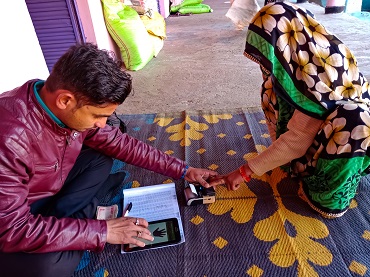Blog
The Evolving Collections and Risk Landscape
Jul 23, 2020

A virtual roundtable summary.
More than four months have passed since the beginning of a global lockdown and only a few weeks since some countries have started to re-open. Yet uncertainty remains as the pandemic continues to burn through countries and even re-emerge in ones that seemed to have it under control. Looking to counter the unpredictable nature and duration of the pandemic, governments and businesses continue to implement and introduce measures to mitigate the impact on their economies. As part of a weekly webinar series on COVID-19 mitigation efforts, the SME Finance Forum hosted a virtual roundtable on Collections and Risks during the COVID-19 crisis. The panel was hosted and moderated by Matthew Gamser (IFC), with Kamal Hingorani (Standard Chartered), Simba Mabhena (IFC), and Ercin Eksin (Lidya) sharing their experiences during the COVID-19 pandemic.
Back in January, when the health crisis surged in China, no one thought that it would extend across the globe and that the disruptions would be this large. Public and financial institutions moved quickly, by establishing credit guarantees, decreasing interest rates, delaying loan payments, shifting to digital payments, and other measures. However, those measures may be falling short, as the period of the crisis and lockdowns is lasting much longer than expected. So, consumers and financial institutions are recalibrating as they respond to the prolonged impact of COVID-19. For example, Standard Chartered, which has closely aligned itself with regulatory guidance across markets, has made changes to relief offerings in line with such guidance. As the extent of lockdowns and disruptions has increased, regulators have asked banks to extend the tenor of their relief programs. According to Kamal, as clients come out of moratorium, some of them will need more longer-term support, and that will depend on the pace of recovery. This recovery will vary based on the type of business. Some business types will recover faster, while some may take longer. For instance, restaurants and retail shops, especially those without an online presence, will continue to face challenges as the way people shop and eat-out is likely to undergo a change.
Interestingly, Lidya, which was founded in response to the mismatch between OpEx needs of SMEs and what traditional FIs offered (or didn’t offer), has not seen a demand for payment moratoria in its client base. Ercin explained that since they operate as a frontier market where data is a challenge, their focus on available data (social media, bank account data, accounting data) has facilitated them to concentrate on growing SMEs, as well as their focus on SMEs that can’t get bank finance. This is the reason why the SMEs they finance seem to be holding their ground. Lidya sees that they are growing again now that markets are opening up.
Disruptions have been felt across every sector in every country in the world, and the financial services industry has been no exception. In fact, the use of alternative data is being adopted more widely by traditional financial institutions in order to respond to the drastically changed data and credit information landscape. In the current environment, FIs have to rely on alternative data to assess risk, and to be able to facilitate access to finance and evaluate operations, real-time data (whether it is extracted from social media, bank accounts, or others), has been vital. With businesses re-opening and economies re-activating, some financial institutions are evaluating alternative data sources to monitor clients. According to Standard Chartered’s Kamal, “The insights that we get from a client’s cash flows, is very helpful, as is tax-related information where available.”
Despite the uptake in the utilization of non-traditional data and the substantial policy measures supporting moratoria and guarantees among so many others, the financing gap for SMEs persists and is worsening in some countries. Even though governments have put stimulus packages into place, the liquidity is not being passed on to SMEs with a catastrophic impact on those economies. The same scenario applies to interest rate reductions that have not always been offered to SMEs. “This is worrying, and this is not promoting access to finance” said IFC’s Simba. And for countries where the informal sector constitutes the majority of SMEs with most/all interventions targeted at formal businesses, there is a profound mismatch. Indeed, regulators should take the opportunity to reset some of the regulations of their markets to ensure that the increased liquidity is having the supportive and stabilizing impact on their economies as it is intended to be.
The challenge still remains that some markets are in the midst of their moratoria, and it is still not certain what will happen when clients come out of them and what the impact may be on collections and how that will impact how FIs and regulators assess risk. Fintechs that aren’t regulated and/or whose business models may insulate them from some of the worst repayment challenges and the cliff of expiring moratoria, may not face the same severity or issues. The good thing is that as lockdowns end, people see business come back, and they are more optimistic.
While the future is unknown, it is essential to keep looking from not only a macro point of view but also a micro one. If we only look at repayment in aggregate for example and do not look at factors in different industries and sectors in real-time, there is no way to respond well and adjust to changing dynamics. And the nature of this health and economic crisis demands that we remain responsive and nimble.

























